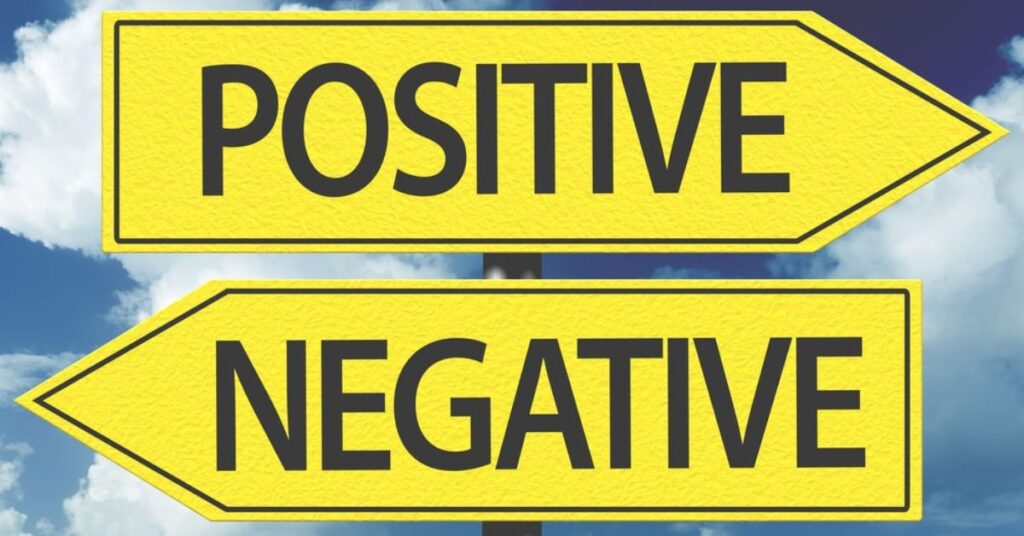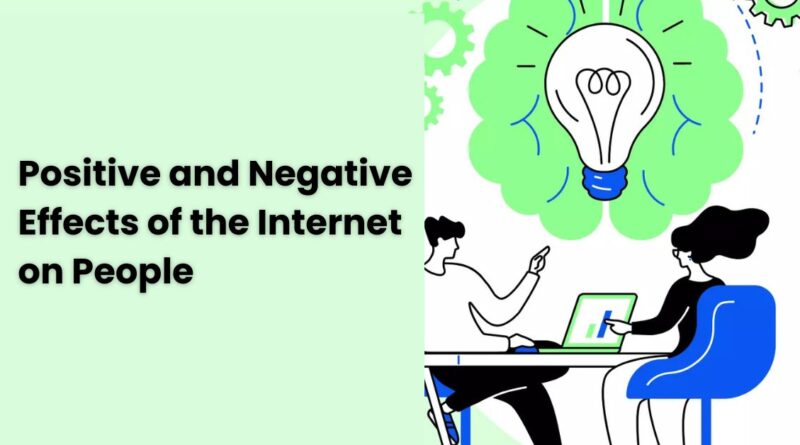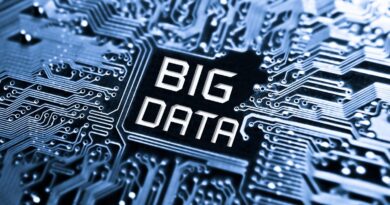Positive and Negative Effects of the Internet on People
The internet has become one of the most transformative inventions in human history, reshaping how people communicate, learn, work, shop, and even think. In just a few decades, it has shifted from being a niche network for researchers and governments to a global infrastructure connecting billions of people. Its impact on human beings is profound touching social relationships, education, business, culture, politics, and mental health. While the internet offers numerous benefits, it also introduces challenges, including privacy concerns, cybercrime, misinformation, and digital addiction. Understanding the multifaceted influence of the internet is essential for individuals, governments, and societies to maximize its advantages while minimizing its drawbacks. This article explores the impact of the internet on human beings, highlighting its positive contributions, potential risks, and the future of this ever-evolving technology.
1. The Positive Impact of the Internet on Human Beings
1.1 Improved Communication and Connectivity
One of the most noticeable effects of the internet is its ability to connect people worldwide in real time. Before the internet, communication across continents could take days or weeks. Now, messages, video calls, and live streams happen instantly.
-
Social Media Platforms such as Facebook, Instagram, and X (formerly Twitter) allow users to share updates, photos, and ideas instantly.
-
Instant Messaging Apps like WhatsApp, Telegram, and Messenger make communication more efficient.
-
Video Conferencing Tools like Zoom, Microsoft Teams, and Google Meet have revolutionized remote work and virtual meetings.
The internet has made maintaining long-distance relationships easier, strengthened global friendships, and created communities around shared interests.
1.2 Access to Information and Knowledge
The internet has democratized information, giving individuals access to knowledge that was once locked away in libraries or universities.
-
Search Engines like Google and Bing allow people to find information in seconds.
-
Online Learning Platforms such as Coursera, Khan Academy, and Udemy provide educational opportunities for learners of all ages.
-
Digital Libraries and Research Archives make academic papers, books, and historical documents widely available.
This easy access to information promotes lifelong learning, helps students with research, and encourages personal growth.
1.3 Economic Opportunities and E-Commerce
The internet has opened countless economic opportunities, allowing businesses to reach global markets and individuals to earn a living from anywhere.
-
E-commerce Platforms like Amazon, Alibaba, and eBay have changed the way people shop.
-
Freelancing and Remote Work are now viable career options thanks to platforms like Upwork, Fiverr, and Freelancer.
-
Digital Marketing enables small businesses to promote products worldwide without huge budgets.
The gig economy, fueled by the internet, offers flexibility, though it also raises questions about job security and benefits.
1.4 Entertainment and Media Access
The internet has transformed the entertainment industry, offering endless choices at the click of a button.
-
Streaming Services like Netflix, Spotify, and YouTube provide instant access to movies, music, and videos.
-
Online Gaming connects players globally for both casual and professional competition.
-
Social Media Influencers and digital creators now shape pop culture and trends.
This shift has disrupted traditional media industries while giving rise to new forms of digital creativity.
1.5 Global Awareness and Social Activism
The internet plays a major role in raising awareness about global issues, from climate change to human rights.
-
Hashtag Movements such as #MeToo and #BlackLivesMatter have mobilized millions.
-
Online Petitions can quickly gain global traction.
-
Crowdfunding Platforms like GoFundMe allow communities to raise money for causes.
The ability to share stories and organize events online has strengthened grassroots activism.
2. The Negative Impact of the Internet on Human Beings
2.1 Privacy and Security Concerns
With the convenience of online connectivity comes the risk of personal data exposure.
-
Cybercrime such as hacking, phishing, and identity theft is on the rise.
-
Social Media Privacy Issues occur when personal information is shared without consent.
-
Data Tracking by companies raises ethical concerns about surveillance.
Users must be cautious and practice cybersecurity measures to protect themselves.
2.2 Misinformation and Fake News
The internet enables rapid information sharing, but not all shared content is accurate.
-
Misinformation can spread faster than verified news.
-
Fake News Websites manipulate public opinion.
-
Deepfake Technology can create convincing yet false images and videos.
Unchecked misinformation can influence elections, public health decisions, and societal trust.
2.3 Mental Health and Digital Addiction
Excessive internet use can affect mental well-being.
-
Social Media Pressure can lead to comparison, anxiety, and depression.
-
Gaming Addiction can disrupt sleep and relationships.
-
Screen Time Overload may lead to eye strain and reduced productivity.
Balancing online and offline life is essential for mental health.

2.4 Reduced Physical Activity
The convenience of online shopping, remote work, and entertainment often leads to a sedentary lifestyle. Prolonged sitting and lack of exercise increase the risk of obesity, cardiovascular diseases, and posture-related problems.
2.5 Cultural Homogenization
While the internet promotes cultural exchange, it can also dilute local traditions. Global trends sometimes overshadow regional languages, customs, and heritage, creating a more uniform culture at the expense of diversity.
3. The Internet’s Impact on Different Aspects of Life
3.1 Education
The internet has revolutionized education by offering:
-
Online degree programs.
-
Virtual classrooms during global crises like the COVID-19 pandemic.
-
Access to vast educational resources for self-paced learning.
However, the digital divide lack of internet access in rural or low-income areas remains a challenge.
3.2 Work and Business
Remote work has become mainstream, allowing employees to work from home or anywhere with internet access. Businesses use online tools for project management, marketing, and global communication. However, constant connectivity sometimes blurs work-life boundaries.
3.3 Relationships and Social Life
The internet allows people to meet partners through dating apps, maintain friendships over long distances, and join communities of shared interest. Yet, it can also lead to superficial interactions, reduced face-to-face communication, and online harassment.
3.4 Politics and Governance
Governments use the internet for public communication, e-services, and policy promotion. Citizens can engage in political debates online. However, political polarization is often intensified by algorithm-driven content on social media.
3.5 Health and Medicine
Telemedicine services allow patients to consult doctors remotely, while health apps track fitness and nutrition. However, self-diagnosis from unreliable sources can lead to health risks.
4. Balancing the Internet’s Pros and Cons
To maximize benefits while minimizing harm, individuals and societies should adopt responsible internet use.
Strategies include:
-
Practicing digital literacy to evaluate information critically.
-
Using strong passwords and security measures.
-
Setting screen time limits for mental and physical health.
-
Supporting ethical online behavior and respecting privacy.
-
Promoting digital inclusion so everyone can benefit equally.
5. The Future of the Internet and Its Potential Impact
Emerging technologies like artificial intelligence, virtual reality, 5G networks, and the Internet of Things (IoT) will make the internet even more integrated into daily life.
-
AI will personalize content and improve automation but raise ethical questions about bias.
-
VR and AR will change how people work, learn, and socialize.
-
IoT will connect household devices, cities, and infrastructure.
The challenge will be ensuring these advancements enhance human well-being without compromising security, privacy, or equity.
Conclusion
The internet is a double-edged sword an extraordinary tool that can connect, educate, entertain, and empower, but also a platform that can mislead, isolate, and exploit. For human beings, the goal should be to embrace the opportunities it offers while being mindful of its risks. By promoting digital literacy, protecting privacy, and maintaining a healthy balance between online and offline life, society can ensure the internet remains a force for progress rather than harm. The internet’s influence will only grow in the coming years, making it essential for individuals, communities, and governments to navigate this digital landscape wisely.
FAQs
1. How has the internet changed human communication?
It has made communication faster, more convenient, and globally accessible through messaging apps, social media, and video calls.
2. What are the negative effects of internet addiction?
It can cause anxiety, depression, reduced productivity, and strained relationships.
3. Can the internet improve education?
Yes, it offers access to online courses, virtual classrooms, and global resources for learners of all ages.
4. How can we protect ourselves from online scams?
By using strong passwords, enabling two-factor authentication, and avoiding suspicious links.
5. What is the future of the internet?
It will involve AI, virtual reality, 5G, and IoT, making connectivity faster and more immersive.




